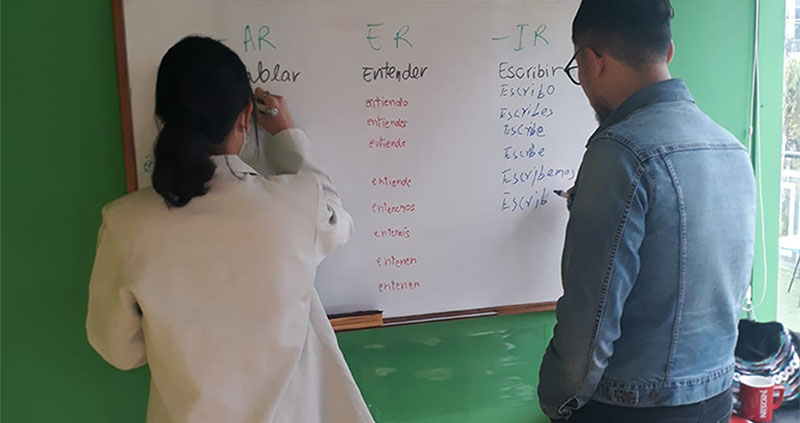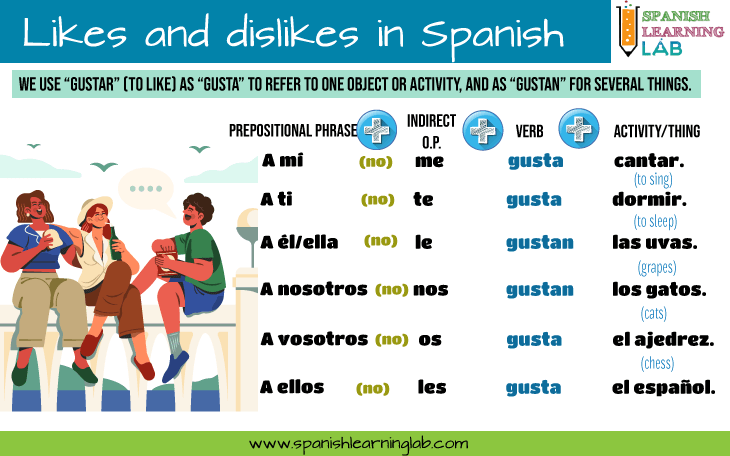- Essay Topic Generator
- Essay Grader
- Reference Finder
- AI Outline Generator
- Paragraph Expander
- Essay Expander
- Literature Review Generator
- Thesis Generator
- Text Editing Tools
- AI Rewording Tool
- AI Sentence Rewriter
- AI Article Spinner
- AI Grammar Checker
- Spell Checker
- PDF Spell Check
- Paragraph Checker
- Free AI Essay Writer
- Paraphraser
- Grammar Checker
- Citation Generator
- Plagiarism Checker
- AI Detector
- AI Essay Checker
- Proofreading Service
- Editing Service
- AI Writing Guides
- AI Detection Guides
- Citation Guides
- Grammar Guides
- Paraphrasing Guides
- Plagiarism Guides
- Summary Writing Guides
- STEM Guides
- Humanities Guides
- Language Learning Guides
- Coding Guides
- Top Lists and Recommendations
- AI Detectors
- AI Writing Services
- Coding Homework Help
- Citation Generators
- Editing Websites
- Essay Writing Websites
- Language Learning Websites
- Math Solvers
- Paraphrasers
- Plagiarism Checkers
- Reference Finders
- Spell Checkers
- Summarizers
- Tutoring Websites
- Essay Checkers
- Essay Topic Finders

Most Popular
10 days ago
Tips for College Freshmen: From Social Life to Studying
Demure tiktok trend explained: what it is and why it’s going viral, college dorm checklist must-have things to take with you, how to develop a homework routine that works, what should you try before graduating senior bucket list, what does “me gusta” mean.

The phrase “Me Gusta” is derived from the Spanish language and translates to “I like it” in English. It has gained popularity in both spoken conversations and online platforms, often appearing as a meme. In this article, we will delve into the meaning, origin, and usage of “Me Gusta” while exploring its cultural impact.
Meaning of “Me Gusta”
“Me Gusta” serves as a way to express approval or liking towards something. It is commonly used in English conversations to show appreciation for someone else’s actions or work, encouraging them to continue their endeavors. The phrase also became a notable internet meme, particularly within online chatrooms and message boards like Reddit and 4Chan.
The “Me Gusta” Meme
The “Me Gusta” meme features a simple yet expressive drawing of a face with scrunched-up features, bloodshot eyes, and pursed lips. This crude depiction represents pleasure derived from awkward or uncomfortable situations. The meme gained popularity through its association with “Rage Comics,” a series of poorly-drawn cartoons, which rose to fame on platforms like 4Chan in 2008. The artist “Insert” created the original “Me Gusta” rage face, leading to its widespread use as a trolling tool on social media.
Usage Examples
To better understand how “Me Gusta” is used, let’s explore a few examples of its usage:
- A parent admiring their child’s artwork might say, “Me Gusta. I love the way it makes me feel like a kid again. You have a real talent for painting.”
- In a workplace scenario, an employer might say to an employee, “Me Gusta. We can use that idea for the project, and it will work. Let me run it past the boss, but I think you have a winner there.”
- During a casual conversation, someone might express their enjoyment of a delicious meal by saying, “The meal was delicious. I love how you combine the flavors to create a unique taste for the dish. Me Gusta.”
Origin of “Me Gusta”
The origins of “Me Gusta” can be traced back to the Spanish language. It became integrated into everyday conversation in the southwestern United States, primarily due to the influx of Mexican and Latin immigration during the 1990s and early 2000s.
Phrases Similar and Opposite to “Me Gusta”
While “Me Gusta” expresses approval and liking, there are alternative phrases that convey similar or contrasting meanings. Phrases similar to “Me Gusta” include “That’s great” and “This is awesome.” On the other hand, phrases opposite to “Me Gusta” include “I dislike it” and “No good.”
Correct Usage and Common Mistakes
When using “Me Gusta,” it is essential to remember that it is a Spanish phrase commonly used around Spanish-speaking individuals. Some people mistakenly spell the phrase as “mea” gusto, which is incorrect. In online contexts, it is more common to use “Me Gusta” as a meme or emote of a rage face rather than spelling it out.
“Me Gusta” is a phrase that signifies approval and liking. Its usage extends from spoken conversations to the online realm, where it became a popular internet meme. Understanding its meaning, origin, and usage allows individuals to effectively communicate their appreciation and support for others. Incorporating phrases like “Me Gusta” into our interactions adds a touch of cultural diversity and shared experiences.
What does “Me Gusta” mean?
“Me Gusta” is a Spanish phrase that translates to “I like” in English. It is used to express enjoyment or approval of something or someone.
How do you use “Me Gusta” in a sentence?
“Me Gusta” is typically used with a noun or an infinitive verb. For example, “Me gusta el chocolate” translates to “I like chocolate,” and “Me gusta correr” means “I like to run.”
Is “Me Gusta” exclusively used in the Spanish language?
Yes, “Me Gusta” is a Spanish phrase. However, because of globalization and the popularity of social media, it has been adopted in other languages as a colloquial phrase.
Can “Me Gusta” have different meanings depending on the context?
While “Me Gusta” usually translates to “I like,” it can take on different nuances depending on the context. For instance, it can indicate a stronger feeling such as “I love” when referring to something you particularly enjoy.
What are some synonyms for “Me Gusta”?
Some Spanish synonyms for “Me Gusta” include “Me encanta” (I love), “Me apetece” (I feel like), or “Me atrae” (I’m attracted to).
Does “Me Gusta” have any cultural significance?
“Me Gusta” is a common phrase in Spanish-speaking cultures and is used to express positive feelings towards something or someone. Its cultural significance lies in its frequent use in everyday conversation.
Are there variations of “Me Gusta” in other languages?
In other Romance languages, similar expressions exist. For example, in Italian, it’s “Mi piace,” and in French, it’s “J’aime.” However, the exact usage and context might vary.
How does “Me Gusta” differ from “Te Gusta” and “Nos Gusta”?
“Me Gusta” translates to “I like.” In contrast, “Te Gusta” translates to “You like,” and “Nos Gusta” translates to “We like.” These variations change the subject of the sentence.
Is “Me Gusta” used colloquially or formally?
“Me Gusta” is used in both formal and informal contexts. Its usage depends on the situation and the individuals involved.
Can “Me Gusta” be used for non-tangible things?
Yes, “Me Gusta” can be used for both tangible items, like food or objects, and intangible concepts, like activities or ideas. For example, you could say “Me gusta la idea” to express “I like the idea.”
Follow us on Reddit for more insights and updates.
Comments (0)
Welcome to A*Help comments!
We’re all about debate and discussion at A*Help.
We value the diverse opinions of users, so you may find points of view that you don’t agree with. And that’s cool. However, there are certain things we’re not OK with: attempts to manipulate our data in any way, for example, or the posting of discriminative, offensive, hateful, or disparaging material.
Cancel reply
Your email address will not be published. Required fields are marked *
Save my name, email, and website in this browser for the next time I comment.
More from Spanish Guides

Te quiero vs. Te amo

Nov 25 2023
Learning about Parts of the Body in Spanish

Nov 24 2023
What Does Compa Mean?
Remember Me
Is English your native language ? Yes No
What is your profession ? Student Teacher Writer Other
Forgotten Password?
Username or Email
How to Say 'Me Gusta' in English: Useful Expressions and Phrases
If you’re learning spanish or just started immersing yourself in the language, you’ve probably come across the phrase “me gusta.” but what does it mean, and how can you express the same sentiment in english in this blog post, we’ll explore useful expressions and phrases to convey the meaning of “me gusta.” let’s dive in.

What does “Me Gusta” mean?
“Me gusta” is a Spanish phrase that translates to “I like” in English. It is used to express a positive sentiment or enjoyment towards a particular person, thing, or activity. However, it’s essential to note that the literal translation is “it pleases me.”
Common English Expressions Equivalent to “Me Gusta”
While the direct translation of “me gusta” is “I like,” there are several other phrases and expressions in English that convey the same meaning. Here are some useful alternatives to express your preferences:
- I’m fond of
- I’m into
- It appeals to me
- It captivates me
These expressions provide flexibility in expressing your liking for something with varying degrees of enthusiasm. Choose the one that best suits your intended meaning in a given context.
Examples of Using “Me Gusta” in English
To help you understand how to use “me gusta” in English, let’s take a look at a few examples:
- I enjoy cooking traditional dishes from around the world.
- I love listening to classical music; it captivates me.
- I’m fond of hiking in the mountains.
- I’m into video games; they appeal to me.
In these examples, we have replaced “me gusta” with its English equivalents to express preferences in different scenarios. Remember, it’s all about finding the right expression that conveys your feelings accurately.
Using “Me Gusta” in Social Situations
“Me gusta” is not limited to expressing personal preferences. It can also be used in social situations to indicate an attraction or interest in someone. In English, we have specific phrases for this purpose. Here are a few examples:
- I have a crush on you.
- I’m attracted to you.
- You catch my eye.
- You’re appealing to me.
These expressions are more appropriate when expressing your interest or attraction towards someone, as “me gusta” doesn’t directly convey this meaning in English.
Learning how to say “me gusta” in English is essential for effectively expressing your preferences or attraction in various situations. By understanding the different phrases and expressions that convey the same meaning, you can confidently communicate your likes and interests. So, whether you love music, enjoy cooking, or admire someone, you now have a range of ways to express your feelings in English!
How helpful was this article?
Stack Exchange Network
Stack Exchange network consists of 183 Q&A communities including Stack Overflow , the largest, most trusted online community for developers to learn, share their knowledge, and build their careers.
Q&A for work
Connect and share knowledge within a single location that is structured and easy to search.
Is "me gustas" ever correct, e.g. to say "I like you"?
We have been taught that 'gustar' is an unusual verb and that you only ever use 'gusta' or 'gustan' depending on whether you like singular or plural things.
Would you use 'me gustas' to say 'I like you'?
- uso-de-palabras
- tiempos-verbales
- Note that in at least some dialects of Spanish as it is spoken (as opposed to Spanish as the academies say it should be spoken) gustar is used as like - e.g. ¿Gustas el café? . – Peter Taylor Commented Jan 6, 2012 at 12:38
- 1 @César: Actually you could use me gustas with anything you address. So yes usually a person but also could involve personification of say a pet or robot but perhaps even inanimate objects on objects on occasion, in which case it would be just as quirky as in English telling your car or computer that you like it. – hippietrail Commented Jan 8, 2012 at 9:55
- 6 @David: Look no further than the famous Manu Chao song, Me Gustas Tú ! – hippietrail Commented Jan 8, 2012 at 10:00
- 1 gustar is not unusual at all. It's almost equivalent to the verb like . And me gustas is correct and very common, I've actually told me gustas to many girls ;-) – Petruza Commented Jan 10, 2012 at 1:58
- 1 I have been taught for years that "me gustas" means "You like me" and been told this is a regional use of the form and definition. Huge debate in my class. – MsWendi Commented Jan 23, 2020 at 22:45
6 Answers 6
Yes, me gustas is correct way to say this.
Gustar is "unusual" in the way that it doesn't mean "to like", but rather "to be liked by", or "to please".
It's absolutely not true that you only ever use gusta or gustan .
Consider few examples for each grammatical person:
Ya no te gusto — You don't like me anymore Me gustas — I like you Me gusta España — I like Spain Sé que os gustamos — I know that you like us No me gustáis — I don't like you (plural) No me gustan los toros — I don't like bullfighting
- I should probably have said "normally only use". Thanks for your quick response. – David Pashley Commented Jan 6, 2012 at 11:28
- Even in normal common usage it's not limited to these two cases. – vartec Commented Jan 6, 2012 at 11:29
- 6 I would say gustar is only unusual when compared to English to like . Taken on its own it's perfectly usual. After all English to please works the same way and we wouldn't say it is unusual. – hippietrail Commented Jan 8, 2012 at 9:57
- It's also unusual in that the subject nearly always comes after the verb and not before. This is still grammatical Spanish, but [S]VO is a more common order. – Michael Wolf Commented Nov 13, 2015 at 22:09
- Is this true for "encantar" as well?? – Mitu Raj Commented May 7, 2020 at 17:10
A remark regarding usage. I'm not very sure what you mean exactly by I like you in English (from a person to another). But in Spanish, if you say me gustas , this is in a more-than-friends sense. In a just-as-friends context, it's better to use me caes bien or me agradas . I think me gustas is more like I have a little crush on you . Be careful with that.
- 5 Totally agree +1. – Alfredo Osorio Commented Feb 10, 2012 at 14:30
- 3 Great point! +1 – Jacobo de Vera Commented Feb 10, 2012 at 16:21
- 4 In Mexico, at least, it's actually stronger than a little crush. It is quite possible for this to be taken as an out and out come-on. – aparente001 Commented Apr 27, 2018 at 1:50
As @vartec said, me gustas is correct. A great way to think about gustar in English is to imagine a word gust that means the opposite of disgust. Just like you would say that person disgusts me, with this imaginary word gust , you would say that person gusts me, meaning he or she pleases you, the opposite of disgust.
Or, for the case is question, you gust me, which would then translate back to me gustas .
Read more at thelearninglight.com .
- 3 +1 interesting indeed! – Jose Luis Commented Feb 10, 2012 at 11:55
- 1 You beat me to it. etymonline.com/… – Ryan David Ward Commented Feb 13, 2012 at 4:54
The other answers have focused on using gustar in the structure that it's normally taught in Spanish classes where *gustar takes an indirect object pronoun. While the most common use is absolutely either gusta or gustan (see this Google N-Gram , I omitted valid forms that weren't found so I could fit it all in a single search), the other forms, as you can see, are certainly used.
There is also another way to use gustar that mirrors the English construction a bit more closely (and is identical to modern Portuguese), although it will come off very formal in modern Spanish. See the comparison:
- I like pizza a lot. Me gusta mucho la pizza. (standard) Gusto mucho de la pizza. (alternate)
- We like to read. Nos gusta leer. Gustamos de leer.
- You're into me. Te gusto. Gustas de mí.
To use this structure, you use gustar with the same subject you would in the English statement, and follow it with the preposition de . The thing that is liked is the object of that preposition.
Finally, gustar can be used to mean like/wish/want/prefer and in this case it is actually a transitive verb, as in ¿Gusta Vd. un vino tinto? (would you like a red wine?) or Haz como gustes (do as you will/wish) . This usage is very rare outside of, well, basically the two phrases (with minimal variation for subject/object) I gave ;-)
- 1 gusto mucho de la pizza?? – Lambie Commented Jul 27, 2023 at 17:53
As an addition to user0721090601's answer, stating that the normal use of "gustar" as a transitive verb has the subject as the cause of pleasure or attraction, I give you here - from the Diccionario Panhispánico de Dudas (2010) - that
Esta es la construcción normal en el habla corriente.
The alternate construction may be found mostly in writing, as I highlight below, and in this case, "de" should not be omitted:
gustar. 1. Cuando significa ‘causar, o sentir, placer o atracción’ es intransitivo y puede construirse de dos formas: a) El sujeto es la causa del placer o la atracción, y la persona que lo siente se expresa mediante un complemento indirecto: «Vos me gustás mucho» (Rovner Pareja [Arg. 1976]); «Le gustaban la buena música y los buenos libros» (Palou Carne [Esp. 1975]). Esta es la construcción normal en el habla corriente. b) La persona que siente el placer es el sujeto y aquello que lo causa se expresa mediante un complemento introducido por de: «Gustaba de reunirse con amigos en su casa» (UPietri Oficio [Ven. 1976]). Es construcción documentada sobre todo en la lengua escrita. Debe evitarse la omisión de la preposición de, frecuente cuando el complemento regido es un infinitivo: «Barcelona y Tenerife, dos conjuntos que gustan jugar al ataque» (Vanguardia [Esp.] 22.3.94). 2 . Como transitivo significa ‘querer o desear’ y su empleo es escaso fuera de fórmulas de cortesía: «¿Gusta usted una cerveza?» (Victoria Casta [Méx. 1995]); «—¿Le molesto si escucho las noticias? —Haga como guste» (Plaza Cerrazón [Ur. 1980]).
No, it is not correct. At least not grammatically correct. While it may be accepted in casual conversation, gustar is conjugated with either a singular or a plural ending. The person is not doing the action, rather represents a single noun that has an effect on a person. ie. Juan a mí me gusta. or Tû a mí me gusta. In this case, the subject pronoun 'you' is not doing the action, therefore the second person tense is not employed. Rather, another item, a singular noun, which happens to be a person, is having an effect on a person. It's comparable to saying that person makes me .... If you require more explanation, look in 501 verbs. It's a great resource. Thanks. Buena suerte.
- 2 "Me gustas" is perfectly valid. You could say "A mi me gusta Juan" (native speakers would favor that structure over "Juan a mí me gusta"). If you were talking to Juan then you could tell him " Me gustas , Juan". "Tû a mí me gusta" is incorrect. Conjugation should be "gusta s " . – Diego Commented Apr 23, 2015 at 0:46
- In addition to what @Diego said, there are some terminology issues here. There are no conjugations that aren't singular or plural, so to imply a verb can "only" be conjugated in singular/plural says only that it's not a defective verb. Subject pronouns don't do actions, just the subjects. There is no "second person tense", tenses indicate temporality, being second person (of which there are 4-5 conjugations for gustar in each tense). – user0721090601 Commented Apr 23, 2015 at 1:25
- Also, when I say "algo me gusta", that thing is doing the action — it just happens the most adequate translation into English switches the roles. Both languages have ways of structuring utterances such that the liked thing is subject or object: I like something, something pleases me, me gusta algo, prefiero algo (or even gusto de algo) – user0721090601 Commented Apr 23, 2015 at 1:26
- @user0721090601 This is late, I know, but books.google.cl/… suggests that English was once the other way- something liking you meant that it pleased you. – Conrado Commented Apr 22, 2020 at 3:10
Your Answer
Sign up or log in, post as a guest.
Required, but never shown
By clicking “Post Your Answer”, you agree to our terms of service and acknowledge you have read our privacy policy .
Not the answer you're looking for? Browse other questions tagged uso-de-palabras tiempos-verbales or ask your own question .
- Featured on Meta
- Bringing clarity to status tag usage on meta sites
- We've made changes to our Terms of Service & Privacy Policy - July 2024
- Announcing a change to the data-dump process
Hot Network Questions
- Does gluing two points prevent simple connectedness?
- How do I do calculations with a sliding window while being memory-efficient?
- How to fix IPv4 routes in Network Manager `nmcli` so I don't have to manually `ip route delete` the route Network Manager creates?
- Can you successfully substitute pickled onions for baby onions in Coq Au Vin?
- Are Experimental Elixirs Magic Items?
- If physics can be reduced to mathematics (and thus to logic), does this mean that (physical) causation is ultimately reducible to implication?
- Meaning of capacitor "× 2" symbol on data sheet schematic
- Fitting 10 pieces of pizza in a box
- "Knocking it out of the park" sports metaphor American English vs British English?
- Why if gravity were higher, designing a fully reusable rocket would be impossible?
- Land possession by the children of Abraham
- Book about a colony ship making an unscheduled stop in a star system with no habitable planets
- Why do combinatorists care about Kazhdan–Lusztig polynomials?
- Which Cards Use -5V and -12V in IBM PC Compatible Systems?
- Can the speed of light inhibit the synchronisation of a power grid?
- Print tree of uninstalled dependencies and their filesizes for apt packages
- How can I address my colleague communicating with us via chatGPT?
- How can one says that a particle IS a representation of some group?
- Are there any original heat shield tiles on any of the retired space shuttles that flew to space?
- Why are the titles of certain types of works italicized?
- If Miles doesn’t consider Peter’s actions as hacking, then what does he think Peter is doing to the computer?
- Which point on a hyperbola is closest to a circle
- Vector of integers such that almost all dot products are positive
- How to raise a vector to powers contained in a vector, change the list into a product, and do this for all the lines of a matrix, efficiently?

How to Use Me Gusta and Gusto in Spanish

Written by Diana Luciana
January 22, 2021.
Last updated: November 20, 2023
Do you know what’s the difference between me gusta and gusto in Spanish? Or what does me gusta mean in Spanish?
Do you want more free Spanish lessons? Book a free consultation with Hannah !
In Spanish, gusto is a masculine noun and means taste, flavor, or pleasure. You can see all its English meanings on SpanishDict . On the other hand, gustó is the past form of the verb gustar :
- Me gusta ( el coche ) is used for the present tense : I like the car/The car pleases me.
- Me gustó (el coche ) is used for the past tense : I liked the car/The car pleased me.
Let’s practice together!
Translate to Spanish the following sentences:
- He likes Thai food.
- They like animals.
- We like the house.
- You (plural) like the fruits.
Test yourself to see if you know how to use me gusta in Spanish. Check out our conversations in Spanish with me gusta !
Let’s see what me gusta in Spanish means, and how to use it with examples.
To recapitulate, me , te, le , nos , os , and les are indirect object pronouns, and the item a person likes ( libro , película , etc.) is the subject of the sentence. Because of that, the verb ( gustar ) must match the subject in number :
- Me gusta el libro. (I like the book./Or the literal translation: The book pleases me.)
- Me gustan los libros. (I like books.
- Nos gusta el libro. (We like the book.)
- Nos gustan los libros. (We like the books.)
- No te gusta nada. (You don’t like anything./Nothing pleases you.) ( Learn more about how to use nada in Spanish .)
- No les gusta nada. (They don’t like anything./Nothing pleases them.)
As you can see, the Spanish verb gustar ONLY changes its form ( gusta / gustan ) according to the number (singular/plural) of liked objects, and NOT according to the pronoun ( me / nos ). Because of that, we use gusta for singular and gustan for plural.
What about gusto or gustó ?
The Spanish verb gustar is usually translated in English as “to like”: Me gusta el libro (I like the book.) But the verb has a slightly different meaning in Spanish: it’s more about what pleases a person rather than what a person likes.
In English , we would say “She likes the movie.” In Spanish , we translate that as Le gusta la película. A literal translation would be: Le (to her/him) gusta (is pleasing) la (the) película (movie). The subject of the sentence is different in both languages: in English, the subject is the person; while in Spanish, the subject is the movie (or the book in the first example.) Because of that, the Spanish verb gustar needs an indirect object pronoun:
- Te (to you, singular)
- Le (to him, to her)
- Nos (to us)
- Os (to you, plural)
- Les (to them)
Me gusta vs. Me gustan
- Click to share on Facebook (Opens in new window)
- Click to share on Twitter (Opens in new window)
- Click to share on LinkedIn (Opens in new window)
- Click to share on Telegram (Opens in new window)
- Click to share on WhatsApp (Opens in new window)
- Click to share on Pinterest (Opens in new window)
- Click to share on Pocket (Opens in new window)
- Click to print (Opens in new window)
- Click to email a link to a friend (Opens in new window)
You May Also Like…

Where to Place Stress On Spanish Words With Teacher Michael
Aug 22, 2024
Where to put the spoken emphasis?

Let’s talk about the weather in Spanish
Dec 12, 2023
Work on your language skills and learn how to talk about the weather in Spanish. Whether it’s small talk or striking up a new conversation, these Spanish dialogues will help you improve your Spanish.

What’s the difference between “un” and “uno” in Spanish?
Dec 5, 2023
Do you know what’s the difference between un and uno in Spanish? Let’s work together on your Spanish skills with these dialogues!
Get free Spanish lessons!
Join the mailing list for updates, special offers, and a $1 conversation class!
You have Successfully Subscribed!

Differences between ‘me gusta’, ‘me encanta’ and ‘amo’
Most people know the definition of each of these 3 expressions: ‘me gusta’, ‘me encanta’ and ‘amo’, but…and the practice?
In these times, it is very easy to go to Google and ask anything that comes to mind, and even what does not, and it will give you the answer.
There are many translators or translation pages, or even a physical dictionary, if you do not want to go to the Internet. The truth is that I do not know anyone who continues to use physical dictionaries, at least for a vocabulary that is not technical.
A dictionary can give you the theoretical definition of the word. But the reality, or practice, is sometimes a little different.
The human being has distorted the reality at will by also modifying part of the theory of a dictionary towards a practice impregnated especially of culture for a more comfortable life with the accelerated times that we live.
These are probably the most important expressions in a person’s daily life. That is, when we give our opinion on any thing or matter, and through which we express our way of thinking, our ideology, our being.
And what better than that opinion is positive. Nobody likes negative opinions, so the most important expressions are or we want them to be positive: ‘me gusta’, ‘me encanta’, ‘amo’.
To understand the difference between the three we will first define each of them.

‘Me gusta’ is the natural expression towards something that pleases us, attracts us, seems or looks nice, is nice.
The literal translation of the verb ‘gustar’ in Spanish is in English ‘to like’.
Indirect Object
The main difference as seen in the title of this section, ‘Me gusta’, is that in Spanish the verb ‘gustar’ has the indirect pronoun.
The indirect complement in Spanish grammar answers the question ‘who?’
What are the indirect pronouns? According to the person they are the following:
- Yo: ME, that means ‘a mí’.
- Tú: TE, that means ‘a ti’.
- Él / Ella: LE, that means ‘a él’ or ‘a ella’.
- Nosotros / Nosotras: NOS, that means ‘a nosotros’ or ‘a nosotras’.
- Vosotros / Vosotras: OS, that means ‘a vosotros’ or ‘a vosotras’.
- Ellos / Ellas: LES, that means ‘a ellos’ or ‘a ellas’.
Translation:
- I: ME, that means ‘me’ (to me).
- You: TE, that means ‘you’ (to you).
- He / She: LE, that means ‘him’ (to him) or ‘her’ (to her).
- We: NOS, that means ‘us’ (to us).
- You (plural): OS, that means ‘you’ (to you).
- They: LES, that means ‘them’ (to them).
Therefore, if I say ‘me gusta’, I am saying that ‘a mí me gusta’. I can also say: ‘a mí me gusta’, even if I am repeating ‘a mí’ and ‘me’. The repetition is to emphasize that ‘a mí’ or ‘I’ in particular ‘me gusta’ or like something.
It is not correct to say ‘a mí gusta’. We cannot substitute ‘me’ (or in its case ‘te’, ‘le’,…) with ‘a mí’ (or in its case ‘a tí’, ‘a él’, ‘a ella’,…).
So if I ask: ‘who likes it?’ The answer is ‘a mí’, in the case of ‘me gusta’.
Direct Object
Another difference that you will have noticed is that it is not necessary to say as in English ‘it’ (I like it), the direct complement.
The direct complement in grammar answers the question ‘what?’. In this case: ‘what do I like?’ (‘¿qué me gusta?’).
In English ‘I like it’. You can not say ‘I like’.
In Spanish we say ‘me gusta’ (‘I like’). We can say ‘me gusta eso’, if the direct complement is not clear, but if it is clear we save a word.
‘Encantarte’ is to like it very much.
Like ‘gustarte’, it carries the indirect pronoun: me, te, le, nos, os ó les.
In English it is ‘to love’. When you like something very much you can say: ‘me gusta mucho’. In English ‘I really like it’, for example. Another option is to say ‘me encanta’. In English: ‘I love it’.

The verb ‘amar’ is translated into English as ‘to love’.
The difference in this case when I give my opinion that I like something or someone very much, it is not common to say ‘lo amo’ as in English ‘I love it’. In Spanish this is usually an exaggeration.
The key to describing this verb in Spanish is that it is really love because we use it when we feel it in the heart.
Latinos are very sentimental and we use the verb ‘amar’ when it comes from the heart, not from the head.
For example:
Yo amo mi trabajo ( I love my job ). It is because I really feel it in my heart. I love (me encanta) my job too much, and that is why I say ‘amo’.
Tú amas practicar yoga ( You love to practice yoga ). Because it drives you crazy to do yoga. It really fills your heart.
Difference between ‘te quiero’ and ‘te amo’
When you tell someone ‘te quiero’ or ‘te amo’, it means almost the same.
‘Te amo’ as we explain is more intense because it comes from the heart.
‘Te quiero’ then, has less weight.
In practice we use ‘te amo’ normally for the couple. With the rest, for example a family member (parents, siblings, children, etc.) or a friend we use ‘te quiero’ or ‘te quiero mucho’.
This does not mean that you cannot say ‘te amo’ to your brother, mother, son,…but it is not common use.

In conclusion:
- When I like something: ‘me gusta’.
- When I like something a lot: ‘me gusta mucho’ or ‘me encanta’.
- When something fills my heart: ‘amo…’.
- ‘Te quiero’ o ‘los quiero mucho’ (them) when you appreciate that person or people.
- ‘Te amo’ o ‘os amo’ (you plural) when you have a very strong feeling from the heart for that person or people.

How often do you use these words in your day to day? Let me know in the comments.
And as always if you have any questions or want to make a contribution, you can also write at the end of the publication.
Diferencias entre ‘me gusta’, ‘me encanta’ y ‘amo’
La mayoría de las personas conoce la definición de cada una de estas 3 expresiones: ‘me gusta’, ‘me encanta’ y ‘amo’, pero…¿y la práctica?
En estos tiempos, resulta muy fácil ir a Google y preguntar cualquier cosa que se nos ocurra, y hasta lo que no, y te dará la respuesta.
Existen muchos traductores o páginas de traducción, o incluso un diccionario físico, si no quieres ir a Internet. La verdad que creo que no conozco a nadie que siga usando diccionarios físicos, al menos para un vocabulario que no es técnico.
Un diccionario te puede dar la definición teórica de la palabra. Pero la realidad, o práctica, a veces es un poco distinta.
El ser humano ha distorsionado la realidad a su antojo modificando también parte de la teoría de un diccionario hacia una práctica impregnada especialmente de cultura para una vida más cómoda con los tiempos acelerados que vivimos.
Probablemente éstas sean las expresiones más importantes en la vida diaria de una persona. Es decir, cuando damos nuestra opinión sobre cualquier cosa o asunto, y a través de la cual expresamos nuestra manera de pensar, nuestra ideología, nuestro ser.
Y qué mejor que esa opinión sea positiva. A nadie le gustan las opiniones negativas, entonces las expresiones más importantes son o queremos que sean positivas: me gusta, me encanta, amo.
Para entender la diferencia entre las tres vamos primero a definir cada una de ellas.
‘Me gusta’ es la expresión natural hacia algo que nos agrada, nos atrae, nos parece bonito, es lindo.
La traducción literal del verbo ‘gustar’ en español es en inglés ‘to like’.
Objeto Indirecto
La principal diferencia como se aprecia en el título de este apartado es que en español el verbo ‘gustar’ lleva el pronombre indirecto.
El complemento indirecto en la gramática española responde a la pregunta ‘¿a quién?’.
¿Cuáles son los pronombres indirectos? Según la persona son los siguientes:
- Yo: ME, que significa ‘a mí’.
- Tú: TE, que significa ‘a ti’.
- Él / Ella: LE, que significa ‘a él’ o ‘a ella’.
- Nosotros / Nosotras: NOS, que significa ‘a nosotros’ o ‘a nosotras’.
- Vosotros / Vosotras: OS, que significa ‘a vosotros’ o ‘a vosotras’.
- Ellos / Ellas: LES, que significa ‘a ellos’ o ‘a ellas’.
Por tanto, si digo ‘me gusta’, estoy diciendo que ‘a mí me gusta’. También puedo decir: ‘a mí me gusta’, aunque esté repitiendo. La repetición es para hacer énfasis que ‘a mí’ en particular me gusta cierta cosa.
No es correcto decir ‘a mí gusta’. No podemos sustituir ‘me’ (o en su caso ‘te’, ‘le’,…) por ‘a mí’ (o en su caso ‘a tí’, ‘a él’, ‘a ella’,…).
Entonces si pregunto: ‘¿a quién gusta?’. La respuesta es ‘a mí’, en el caso de ‘me gusta’.
Objeto Directo
Otra diferencia que habrás notado es que no es necesario decir como en inglés ‘it’ (I like it), el complemento directo.
El complemento directo en gramática responde a la pregunta ‘¿qué?’. En este caso: ‘¿qué me gusta?’.
En inglés ‘I like it’. No puedes decir ‘I like’.
En español sí decimos ‘me gusta’. Podemos decir ‘me gusta eso’, si no está claro el complemento directo, pero si está claro nos ahorramos una palabra.
‘Encantarte’ es gustarte mucho.
Al igual que ‘gustarte’, lleva el pronombre indirecto: me, te, le, nos, os ó les.
En inglés es ‘to love’. Cuando algo te gusta mucho puedes decir: ‘me gusta mucho’. En inglés ‘I really like it’, por ejemplo. Otra opción es decir ‘me encanta’. En inglés: ‘I love it’.
El verbo ‘amar’ se traduce al inglés como ‘to love’.
La diferencia en este caso cuando opinamos que algo o alguien nos ‘gusta’ mucho, no es común decir ‘lo amo’ como en inglés. En español esto es normalmente una exageración.
La clave para describir este verbo en español es que realmente es amor porque lo usamos cuando lo sentimos en el corazón.
Los latinos somos muy sentimentales y usamos el verbo amar cuando viene del corazón, no de la cabeza.
Por ejemplo:
Yo amo mi trabajo . Es porque realmente lo siento en el corazón. Me encanta demasiado mi trabajo, y por eso digo ‘amo’.
Tú amas practicar yoga . Porque te vuelve loco o loca hacer yoga. Realmente te llena el corazón.
Diferencia entre ‘te quiero’ y ‘te amo’
Cuando le dices a alguien ‘te quiero’ o ‘te amo’ significa casi lo mismo.
‘Te amo’ como explicamos es más intenso porque sale del corazón.
‘Te quiero’ por tanto tiene menos peso.
En la práctica usamos ‘te amo’ normalmente para la pareja. Con el resto, por ejemplo un familiar (padres, hermanos, hijos, etc.) o un amigo o amiga usamos ‘te quiero’ o ‘te quiero mucho’.
Esto no quiere decir que no puedas decir ‘te amo’ a tu hermano, madre, hijo,…pero no es el uso común.
En conclusión:
- Cuando algo me agrada: ‘me gusta’.
- Cuando algo me agrada mucho: ‘me gusta mucho’ o ‘me encanta’.
- Cuando algo me agrada desde el corazón: ‘amo…’.
- ‘Te quiero’ o ‘los quiero mucho’ (a ellos) por ejemplo, cuando aprecias a esa persona o personas.
- ‘Te amo’ o ‘os amo’ (a vosotros o a vosotras) cuando tienes un sentimiento muy fuerte desde el corazón por esa persona o personas.
¿Con qué frecuencia usas estas palabras en tu día a día? Házmelo saber en los comentarios.
Y como siempre si tienes alguna duda o quieres hacer alguna aportación, también puedes escribir al final de la publicación.

How to use ‘me gusta’ in Spanish
The coffee break spanish show - season 1, episode 3, share this post.
Me gusta el español may be one of the first sentences we learn when we start studying Spanish. However, gustar can be a tricky verb to use!
In fact, “how do you say that you like something?” is one of the questions we get asked the most by our Coffee Break Spanish community. That’s why in the latest episode of The Coffee Break Spanish Show Mark and Concha are chatting about how the structure me gusta works and teaching us how to use it in different tenses and situations.
The Coffee Break Spanish Show is a podcast series of bite-sized, friendly conversations in which we demystify tricky Spanish language topics, and we hope that after listening to the episode and reading this article you’ll be confident using the verb gustar in many different situations.
Continue reading to find out more and why not listen to the podcast as you go?
Verbs like gustar (used to talk about liking things) or encantar (used to talk about loving things) are back-to-front verbs when we compare the structure to English. Let’s take an example:
Me gusta el café. I like coffee.
Yes, this means “I like coffee”, but its literal meaning is “to me ( me ) it pleases ( gusta ) the coffee ( el café )”. Or, in other words, “coffee pleases me” = me gusta el café .
Understanding this structure is key to using the verb properly, because the verb is conjugated according to what is pleasing to us or what we like.
That might sound a bit obscure, so here are three examples where we can see how it is used in different situations:
me gusta + singular noun
e.g. Me gusta la manzana. I like the apple.
me gustan + plural noun
e.g. Me gustan las tazas. I like the mugs.
me gusta + verb (infinitive)
e.g. Me gusta estudiar español . I like studying Spanish.
As you can see in the second structure, when we have a plural noun ( tazas – “mugs”), instead of using me gusta ( gustar in the third person singular form) we use me gustan (in the third person plural form). Remember that in Spanish we are saying “something pleases me”. When that something is a plural noun (as is the case with tazas ), we are therefore saying “they please” ( gustan ), rather then “it pleases” ( gusta ).

‘Gustar’ in different tenses
Now, let’s take this a stage further and try using gustar in different tenses. How would you say the following sentences in Spanish?
I have liked them a lot.
I liked them a lot.
You will like them.
You are going to like them.
Think about them for as long as you need to, then check the answers below:
Here, we are using the perfect tense: Me han gustado mucho.
Now, we are using the preterite tense. Me gustaron mucho.
Using the future tense, this would be: Te gustarán mucho.
Here, we use the structure ir a + infinitive, and here we have two possible options. In the first option, the pronoun ( te ) goes before the van a gustar structure. In the second option, the pronoun goes after and is attached to the infinitive. Both are correct and there’s no difference in meaning: Te van a gustar mucho. / Van a gustarte mucho.
How to say “I like you”
We have seen how to use gustar in different tenses and structures, so now, can you guess how “I like you” is expressed in Spanish?
Since we are literally saying “you please me”, this would be me gustas (tú) , where the verb is conjugated according to the subject, tú . Remember that the subject pronoun is optional, as usual in Spanish.
To ask somebody “do you like me?”, you would say ¿te gusto? , literally meaning “do I please you?”
Note that using gustar in this way suggests liking someone in a romantic way.
“I like you” – with friends
If you want to say you like someone, but not in a romantic way, we use caer bien in Spanish. ¡Ojo! Caer is an irregular verb in some tenses. Let’s look at some examples:
La novia de mi hermano me cae bien. I like my brother’s girlfriend (literally, “my brother’s girlfriend falls well to me”).
Los vecinos no me cayeron bien. I didn’t like the neighbours.
Translation challenge
Let’s put what we’ve learned to the test. How would you say the following sentence in Spanish? Try translating it using gustar first, then using caer bien , and think about how the meaning changes with each verb. You can find the answers at the end of this article. Here’s your translation challenge:
At the beginning I didn’t like you, but now I like you very much.
Conclusion and answers
If you found this post interesting, make sure to listen to the full episode with Mark and Concha on The Coffee Break Spanish Show . This is the series in which we look at a range of topics for Spanish learners, so make sure to subscribe to our podcast feed and our channel on YouTube .
Plus! To get regular free Spanish lessons in your inbox, you can sign up for our short (coffee-break-sized) email lessons that will help you improve your Spanish. You will also hear from Mark, the founder of Coffee Break Languages, giving advice for language learners at any level. Sign up below!
Happy Coffee Breaking!
PS. Here are the translations of the sentence:
Using caer bien : Al principio no me caíste bien, pero ahora me caes muy bien. You would use this when talking to a friend or an acquaintance.
Using gustar : Al principio no me gustabas, pero ahora me gustas mucho. You would use this when talking to somebody you are romantically interested in.
Listen to the podcast
Get the worksheet, more to explore.

How to react like a native speaker: Spanish filler words

4 ways to translate ‘to become’ in Spanish

Coffee Break Languages is a product of Radio Lingua Ltd.
Get Started
- Members' Login
- Coffee Break English
- Coffee Break French
- Coffee Break German
- Coffee Break Italian
- Coffee Break Mandarin Chinese
- Coffee Break Spanish
- Coffee Break Swedish
- Coffee Break Academy
- Coffee Break TV
- RLN Education (Schools)
- Coffee Break Partnerships
- Terms of Use
- Privacy Policy
- Refund Policy
- Cookie Policy
© Radio Lingua Ltd 2008-2023 All rights reserved
Not sure which program to pick? Compare programs
Me Gusta! How to Say You Like Things in Spanish

Get our free email course, Shortcut to Conversational.
Have conversations faster, understand people when they speak fast, and other tested tips to learn faster.
How do you say “I like _____” in Spanish?
Me gusta is one of the most useful basic expressions. We’re constantly talking about things we do and don’t like, and it’s no different in Spanish.
“I like” in Spanish: Me gusta
- Me gusta el helado (I like ice cream).
- A Manuel le gusta leer. (Manuel likes to read)
- A Ana le gusta el chocolate. (Ana likes chocolate)
“I don’t like”: No me gusta
- No me gusta el brócoli (I don’tlike broccoli).
- A Camila no le gusta madrugar. (Camila doesn’t like waking up early)
- No me gusta trabajar los domingos. (I don’t like working on sundays)
Conjugation
Notice, this is different from how things “usually” are for conjugations. The verb isn’t changing, we’re just changing the object in front. While confusing in relation to other Spanish verbs, if you look at it from an English standpoint – it’s pretty simple.
Instead of “I like” it’s “me gusta”. “You like” is “te gusta”. See how we’re just making the I/you/she/etc change the part in front, and then leaving the “like” as “gusta”?
| English | Spansih |
|---|---|
| I like | Me gusta |
| You like | Te gusta |
| He likes | Le gusta |
| She likes | Le gusta |
| It likes | Le gusta |
| You like (plural) | Les gusta |
| We like | Nos gusta |
| They like | Les gusta |
“Love” verb in Spanish: Amar
- Yo amo a mi familia (I love my family).
- Gustavo ama a su país. (Gustavo loves his country)
- Daniel ama a su esposa. (Daniel loves his wife)
Now, we’re back to normal conjugations ?
| English | Spanish |
|---|---|
| I love | Yo amo |
| You love | Tú amas |
| You love (formal) | Usted ama |
| He loves | Él ama |
| She loves | Ella ama |
| It loves | Eso ama |
| You love (plural) | Ustedes aman |
| We love | Nosotros amamos |
| They love | Ellos aman |
To make it negative (I don’t like), just add “no” in front of the verb. For instance “yo no amo” (I don’t love). If you are talking about loving someone, for instance “les amo” (I love them), to negate it, the “no” goes before all of that, “no les amo” (I don’t love them).
“Hate” verb in Spanish: Odiar
- Él odia las mentiras (He hates the lies).
- Gabriel odia llegar tarde. (Gabriel hates arriving late)
- Luz odia a su jefe. (Luz hates her boss)
Again, standard conjugation. Easy peasy!
| English | Spanish |
|---|---|
| I hate | Yo odio |
| You hate | Tú odias |
| You hate (formal) | Usted odia |
| He hates | El odia |
| She hates | Ella odia |
| It hates | Eso odia |
| You love (plural) | Ustedes odian |
| We love/td> | Nosotros odiamos |
| They hate | Ellos odian |
“Want” verb in Spanish: Querer
- Ella quiere un perro (She wants a dog).
- Carlos quiere ver a su familia. (Carlos wants to see his family)
- Valentine quiere dulces. (Valentine wants sweets)

Negative Examples
- Yo no quiero verte más (I don’t want to see you anymore).
- Él no quiere ir a clase. (He doesn’t want to go to class)
- Los niños no quieren comer vegetales. (The kids don’t want to eat vegetables)
There are a few irregular conjugations for this verb, but we use it so often that you’ll want to memorize it cold. Get our flashcards to do that for free here .
| English | Spanish |
|---|---|
| I want | Yo quiero |
| You want | Tú quieres |
| You want (formal) | Usted quiere |
| He wants | El quiere |
| She wants | Ella quiere |
| It wants | Eso quiere |
| You want (plural) | Ustedes quieren |
| We want | Nosotros queremos |
| They want | Ellos quieren |
Note: Quiero also means “I love”, depending on the context (but it’s usually I want). For instance, “te quiero” means “I love you”, but it’s much less serious than “te amo”. For instance, girls will tell their girlfriends “te quiero” all the time, but not “te amo”. If you’re dating someone, “te quiero” is when you’re dating after awhile, and “te amo” is when things get really serious. “Te amo” is very strong.

Unsure what to learn next?
Download the exact curriculum that thousands of BaseLang students have used to become fluent in Spanish.
“Do you like?” in Spanish: ¿Te gusta?
To ask for preferences in Spanish we follow this structure:
¿Nosotros queremos comer más? Conjugation + complement
Both have the same meaning. Here are more examples:
- ¿Te gusta ir de fiesta? (Do you like to party?)
- ¿Te gustan los animales? (Do you like animals?)
- ¿Te gusta aprender con BaseLang? (Do you like learning with BaseLang?)
Me Gusta Practice
Now, complete this according to your likes and dislikes.
There’s no answer key for this since it’s just your personal opinion.
- Me gusta _________________________________________________
- No me gusta _____________________________________________
- Yo amo ___________________________________________________
- Odio ______________________________________________________
- Yo quiero ________________________________________________
- Yo no quiero _____________________________________________
For more free practice, click here to get our private flashcards.
That’s all for this post! If you’re still confused or have questions, leave a comment and we’ll help you out ?
Get our FREE 7-day email course, Shortcut to Conversational
The exact strategies you need to become conversational in Spanish this year. Join the course now, before we come to our senses and charge for it!

Cuyo and Cuanto: Understanding Relative Adjectives in Spanish

To in Spanish: All the possible translations, use by use

Expressions of courtesy: How to be polite in Spanish
Free resource: get access to flashcards for this (and every other) baselang free course lesson.
Enter your email below, and get access to our private Memrise.com flashcards (including audio for every word!) to follow along with the free lessons here on the BaseLang blog.
Success! Thanks
Go check your email for the link to our private Memrise group. If it's not there, check spam and then whitelist us!
Download the exact curriculum that thousands of BaseLang students have used to become fluent in Spanish
Thanks for Signing Up!
We sent you an email with a link to download the guide
This blog is presented by BaseLang: Unlimited Spanish Tutoring for $179 a Month. Learn more here.
Your First Week Is Just $1.
After that, it’s just $179/mo for unlimited one-on-one tutoring.
Remember, the worst case scenario is you get a few free classes, don’t like it, and end up with an extra $20 in the bank.
Subscribe to BaseLang Bites
Supercharge your Spanish with our short weekly email, with bite-sized lessons and tips 🚀
BIENVIENDOS A BASELANG BITES!
Keep an eye out for the first lesson coming to your inbox shortly 🙌

Download BaseLang's Ultimate Guide to Spanish!
Get Access Now!
Sign up today so you can get instant access to this product bundle!
I like - me gusta
| la pizza. | ||
| la música. | ||
| la guitarra. | ||
| viajar. | ||
| el deporte. | ||
| el fútbol. |

‘Me gusta’ vs ‘Me gustaría’ in Spanish

In Spanish, any verb can change its purpose and meaning depending on the tense that’s being used. This is the case of ‘me gusta’ and ‘me gustaría’ in Spanish. On top of having different meanings and intentions, both ‘me gusta’ and ‘me gustaría’ work with different elements. As a result, they’re not interchangeable.
So what’s the difference between ‘me gusta’ and ‘me gustaría’ in Spanish? ‘Me gusta’ means ‘I like’. It is used to talk about likes and dislikes. ‘Me gustaría’ is the conditional form of ‘me gusta’ and it means ‘I would like’. It is used to talk about desires and is used as a polite expression.
When starting to learn Spanish, it’s easy to confuse ‘me gusta’ and ‘me gustaría. That’s why in the following sections we’ll explain to you the difference between them as well as the contexts where you can use them and some examples to see how you can apply them. By the end of it, you will understand the difference between ‘me gusta’ and ‘me gustaría’.
What’s the difference between ‘me gusta’ and ‘me gustaría’?
Both ‘me gusta’ and ‘me gustaría’ are different tenses of the verb ‘gustar’. Therefore, their intentions and grammar elements used with them are completely different. Here is a quick overview of these verbs.
Me gusta is conjugated in the present tense, as a result, it can be used to talk about preferences (likes and dislikes). In this context, it can work with nouns and infinitive verbs. It’s translated as ‘l like’ .
Me gusta la comida china I like Chinese food
On the other hand, me gustaría is the conditional form of ‘gustar’. Therefore, we use it to talk about desires (things we would like to do). In some contexts, ‘me gustaría’ can also be used as a polite expression. It works with infinitive verbs and conditional clauses. It means ‘ I would like’.
César, me gustaría aprender español más rápido Cesar, I would like to learn Spanish faster
In the following sections, we’ll show you when to use these tenses as well as some basic phrase structures that they follow.
When to Use ‘Me gusta’ in Spanish
In their present form, ‘me gusta’ is used to talk or ask about likes and dislikes. As a result, it’s translated as ‘I like’. However, in Spanish, ‘me gusta’ is only used to talk about food, objects, activities, and animals.
Although it can also be used to talk about people, this verb expresses a physical attraction. Since it’s in the present tense form ‘me gusta’ expresses real facts and information. Here are some contexts where you can apply ‘me gusta’ and the sentence structures that you need to use:
To talk about activities you like:
When talking about activities you like to do, this is the phrase structure you need to follow. Notice that the verb in infinitive form expresses the activity you like.
Me gusta + (mucho) + [verb infinitive form]
A mí me gusta cocinar y ver televisión I like to cook and to watch movies
Me gusta mucho aprender idiomas y conocer otras culturas I like learning new languages and knowing other cultures a lot
Take Note: ‘Me gusta’ is the conjugation for the first person (Yo), to talk about yourself. If you want to talk about other people’s likes or dislikes, you will need to replace me with the correct indirect pronoun .
A Tania le gusta dormir Tania likes sleeping
If instead of talking about likes, you want to talk about dislikes, you only need to add ‘no’ before ‘me gusta’.
La verdad no me gusta bailar To be honest, I don’t like to dance

To talk about objects, food and animals
When talking about things, food and animals you like, you will need to use one of the following phrase structures:
Me gusta + (mucho) + [singular definite article]+ [singular noun]
A mí me gusta el programa que Paula me recomendó I like the tv show that Paula recommended me
Me gusta mucho la comida Mexicana porque es muy picosa I like Mexican food a lot because it’s very spicy
As you may know, in Spanish, the number of a noun will affect a whole phrase structure. So if you want to talk about plural objects, this is how you do it:
Me gustan + (mucho) + [singular definite article]+ [plural noun]
Me gustan mucho los perros pequeños I like small dogs a lot
Mamá, ¿ me gustan las donas de chocolate? Mom, do I like chocolate donuts?
Expressing affection or appreciation for someone
In Spanish, we can never use ‘me gusta’ to express that we find a person agreeable. Instead, we use ‘me cae bien’ or ‘me agrada’. Both expressions are still translated as ‘I like’.
Paula me cae bien I like Paula
Me caen bien los primos de Laura I like Laura’s cousins
Related Resource : Me gusta vs Me cae bien
When to Use ‘Me gustaría’ – I would like
In Spanish, ‘me gustaría’ is the conditional form of the verb ‘gustar’. Therefore, it’s translated as ‘ I would like’. Unlike ‘me gusta’, ‘me gustaría’ doesn’t talk about real facts. Instead, it’s used to express future desires which haven’t happened and we don’t know if one day they will come true. Here is the phrase structure you need to follow:
Me gustaría + [verb in infinitive form]
La verdad, me gustaría salir contigo To be honest, I would like to date you
Me gustaría hablar español perfectamente I would like to speak Spanish perfectly
No sé bailar, pero me gustaría aprender I don’t know how to dance, but I would like to learn
¿No te gusta España? A mi me gustaría vivir en ahí unos meses You don’t like Spain? I would like to live there for a few months
Me gustaría tener más dinero para poder viajar por todo el mundo I would like to have more money so I can travel around the world
To ask politely
In addition to talking about desires, ‘me gustaría’ can also be used as an expression of politeness. Here are some examples:
Joven, me gustaría ordenar dos ensaladas, por favor Young man, I would like to order two salads, please
Señorita, me gustaría hablar con su supervisor, por favor Miss, I would like to speak to your supervisor, please
Me gustaría otro pedazo de pastel, por favor I would like another piece of cake, please
Related Resource: How to order food in Spanish
Take Note: As a conditional tense, ‘me gustaría’ also works with conditional sentences in Spanish. When being used as an expression of politeness, ‘me gustaría’ can be replaced with ‘quisiera’.
Wrapping Up
In Spanish, ‘me gusta’ and ‘me gustaría’ are two different tenses for the verb ‘gustar’. Therefore, the intention of these phrases is completely different. That’s why in this article we explained the differences between these words as well as the elements and phrases structures that they need to follow. Here are some quick takeaways:
- Means ‘ I like’.
- Talks about real facts and information about likes and dislikes.
- Express likes about objects, food, activities and people (in a romantic way).
- Works with singular and plural nouns as well as infinitive verbs.
- Works with infinitive verbs when talking about activities and nouns when talking about objects.
- It’s conjugated in plural form (me gustan) when talking about plural objects.
Me gustaría
- Means ‘I would like’.
- Expresses future desires.
- It can be used as a polite expression .
Daniela Sanchez
¡Hola! Soy Daniela Sanchez, I've been studying Spanish professionally as well as teaching it in Mexico and online for over 10 years. I’ve taught Spanish to a wide array of foreigners from many backgrounds. Over the years, I've made it my mission to work hard on refining many challenging to understand grammar topics to make my students' learning experiences easier, faster and more enjoyable. Read More About Me
Recent Posts
Cuál vs Qué: Key Differences You Need to Know
Cuál vs qué is a topic that often confuses Spanish learners. Qué inquires about definitions, time, explanations, or identifies something. It’s the direct translation of ‘what’. Cuál means...
Salir vs Dejar vs Irse: Key Usage Differences
Salir vs dejar vs irse confuse learners because they all mean ‘to leave’, but aren’t interchangeable. Irse conveys and emphasizes that someone is leaving a place. Dejar expresses that someone...
Pin It on Pinterest

How to use the verb “gustar” to express likes and dislikes

When we are learning a new language, one of the first things we should know is how to express our likes and dislikes.
We use this simple vocabulary whenever we visit new places , meet new people, or try foods.
Let’s begin!
Learning how to use the verb “gustar”
To express your likes and dislike, you need to learn first the verb “gustar” or to like in English.
This verb is somehow special. Its conjugation is not like the majority of verbs.
When conjugating the verb “gustar”, we don’t use personal pronouns (yo, tu, el, ella, nosotros, usted, ellos, ellas), instead, we use indirect object pronouns (me, te, nos, le.)
We use the verb “gustar” to:
- Express that we like or dislike an activity. In this case, we use the verb “gustar” with a verb in its infinitive form: Gustar + verb
- Express that we like or dislike an object, using the verb’s singular or plural form.
Verb “gustar” + other verbs
Let’s start with learning how to express our likes and dislikes of an activity.
There is a simple formula for this:
Indirect object pronoun + gusta + complementary verb (infinitive form) Me + gusta + comer I like to eat
Some examples are:
| We say: | |
| Me gusta viajar | |
| Te gusta pintar | |
| Le gusta comer pizza | |
| Nos gusta escuchar música | |
| Les gusta cocinar juntos | |
| Les gusta bailar |
In addition to indirect object pronouns, we often accompany the phrases with a prepositional pronoun (a mi, a ti, a él, a ella, a ellos, a nosotros, a ustedes) usually to reinforce ideas, emphasize something, or separate the subject from others’ opinions or preferences.
What would that phrase be like if it included a prepositional pronoun?
| A mi me gusta viajar, pero a ella le gusta estar en casa | (I like to travel, but she likes to stay at home) |
| A ti te gusta pintar, ¿verdad? | (You like painting, don’t you?) |
| A él/ella le gusta comer pizza los domingos) | (she likes to eat pizza on Sundays) |
| A nosotros nos gusta escuchar música clásica, pero a ellos no les gusta | (We like listening to Classical music but they don’t like it) |
| (A ustedes) les gusta cocinar juntos? | (Do you like cooking together?) |
| (A ellos/ellas) les gusta bailar, ¡son latinos/latinas! | They like dancing; they are Latins! |
The negative form of the verb “gustar”
What do we say when we DON’T like something?
Expressing your dislike is super easy with this formula.
Prepositional pronoun (optional) + No + Indirect object pronoun + gusta + complementary verb (a mi) + No + Me + gusta + comer I don’t like to eat
Let’s see how it looks with the same examples we used above:
| (Optional) | |
| (A mi) | NO me gusta viajar |
| (A ti) | NO te gusta pintar |
| (A el/ella) | NO le gusta comer pizza |
| (A nosotros) | NO nos gusta escuchar música |
| (A ustedes) | NO les gusta cocinar juntos |
| (A ellos/ellas) | NO les gusta bailar |
Asking questions with the verb “gustar”
If you ask someone what they like, you add the question mark and intonation at the end of the sentence.
| (Optional) | |
| (A mi) | ¿Me gusta viajar? |
| (A ti) | ¿Te gusta pintar? |
| (A el/ella) | ¿le gusta comer pizza? |
| (A nosotros) | ¿nos gusta escuchar música? |
| (A ustedes) | ¿les gusta cocinar juntos? |
| (A ellos/ellas) | ¿les gusta bailar? |
Verb “gustar” + objects
Section one explained that we use the verb “gustar” when we like an activity, which implies using a verb in its infinitive form. But how about when we like or don’t like things?
This is the case!
In this case, the verb slightly varies depending on whether the object we are referring to is singular or plural.
How is this?
When we refer to things, we know they could be singular or plural. Depending on this, the verb would be:
“Gusta”, referring to singular objects “Gustan”, referring to plural objects
The use of the indirect object pronouns and preposition pronouns reminds the same.
Let’s see some examples:
| Me gusta el café | I like coffee |
| Me gustan las frutas | Me gustan las frutas I like fruits |
| ¿Te gusta el agua caliente o el agua fría? | Do you like hot water or cold water? |
| ¿Te gustan los perros o los gatos? | Do you like dogs or cats? |
| A ella le gusta ese vestido | She likes that dress |
| A ella le gustan esos zapatos | She likes those shoes |
| A nosotros nos gusta la playa | We like the beach |
| A nosotros nos gustan las montañas | We like mountains |
| ¿Les gusta esta casa? | Do you like this house? |
| ¿Les gustan estos apartamentos? | Do you like these apartments? |
| ¿A ellos les gusta el calor o el frío? | Do they like hot or cold weather? |
| ¿A ellos les gustan las flores o las plantas? | Do they like flowers or plants? |
Other ways to express likes and dislikes
As we have the love spectrum , we also have the likes & dislikes spectrum…
What is it?
By spectrum, we mean the different levels of likes and dislikes. When you like something, or when you love something!. And, when you don’t like something, and when you really hate something!
Like spectrum
| Me gusta el café | I like coffee |
| Me gusta mucho el café | I like coffee a lot |
| Me gusta muchísimo el café | I really like coffee |
| Me encanta el café | I love coffee |
| Amo el café | I really love coffee |
Dislike Spectrum
| No me gusta el café | I don’t like coffee |
| No me gusta mucho el café | I don’t really like coffee much |
| Odio el café | I hate coffee |
| Detesto el café | I really hate coffee |
We hope this article is helpful for you! If you want to learn more verbs and how to conjugate them in different tenses, come join our classes!
Don’t forget to follow our social media and read our bi-weekly blog to LEARN MORE THAN SPANISH.
We hope to see you soon!
You might also like

Our Office Hours
Mo-Fr: 8:00-19:00 Sa: 8:00-14:00 So: closed
WHERE TO FIND US
Carrera 13 # 77-44, Piso 5 Bogotá, Cundinamarca, Colombia Phone: +57 315 381 8375 Whatsapp: 57 315 381 8375 Email: [email protected]

Want to hear from us? Sign up for our Newsletter.

By continuing to browse the site, you are agreeing to our use of cookies.
Cookie and Privacy Settings
We may request cookies to be set on your device. We use cookies to let us know when you visit our websites, how you interact with us, to enrich your user experience, and to customize your relationship with our website.
Click on the different category headings to find out more. You can also change some of your preferences. Note that blocking some types of cookies may impact your experience on our websites and the services we are able to offer.
These cookies are strictly necessary to provide you with services available through our website and to use some of its features.
Because these cookies are strictly necessary to deliver the website, refusing them will have impact how our site functions. You always can block or delete cookies by changing your browser settings and force blocking all cookies on this website. But this will always prompt you to accept/refuse cookies when revisiting our site.
We fully respect if you want to refuse cookies but to avoid asking you again and again kindly allow us to store a cookie for that. You are free to opt out any time or opt in for other cookies to get a better experience. If you refuse cookies we will remove all set cookies in our domain.
We provide you with a list of stored cookies on your computer in our domain so you can check what we stored. Due to security reasons we are not able to show or modify cookies from other domains. You can check these in your browser security settings.
We also use different external services like Google Webfonts, Google Maps, and external Video providers. Since these providers may collect personal data like your IP address we allow you to block them here. Please be aware that this might heavily reduce the functionality and appearance of our site. Changes will take effect once you reload the page.
Google Webfont Settings:
Google Map Settings:
Google reCaptcha Settings:
Vimeo and Youtube video embeds:
You can read about our cookies and privacy settings in detail on our Privacy Policy Page.

You can’t use me gusta in these 5 situations!

Me gusta la guitarra, me gustas tú. Me gusta el reggae, me gustas tú.
(I like the guitar, I like you. I like reggae, I like you.)
Me gusta, in general terms, means “I like”. But there’s more to it. Tal vez estás diciendo “me gusta”, cuando en realidad quieres decir otra cosa. (Maybe you’re saying “me gusta” when in reality you mean something else.)
Soy Paulísima. Bienvenidos a Spring Spanish. Empecemos con el número uno. (I’m Paulisima. Welcome to Spring Spanish. Let’s start with number 1.)
1. Decir “me gusta” en vez de “me cae bien”
Este debe ser el error más común. O por lo menos, uno de los más comunes que cometen los estudiantes de español. (This must be the most common mistake. Or at least, one of the most common mistakes that Spanish students make.)
Actor 1 Acabo de conocer al novio de mi mejor amiga. Es buena onda. Me gusta. (I just met my best friend’s boyfriend. He’s cool. I like him.)
Actor 2 O sea, ¿cómo? ¿Te gustó? (What do you mean? You like him?)
Actor 1 Sí, me gustó, es muy chistoso. (Yes, I like him, he’s very funny.)
Actor 2 Creo que lo que quieres decir es “me cayó bien”. (I think what you mean to say is “I liked him as a person”.)
Actor 1 ¿Conoces a Pablo Martínez? El maestro de Economía. (Do you know Pablo Martínez? The Economics teacher.)
Actor 2 Sí, me cae bien. (Yes, I like him.)
En México decimos (In Mexico we say) “ me cae bien ” to say” I like” but I “like” because they’re funny, a good person. Saying “ me gusta ” about someone means that you find them attractive.
Me cae bien es muy usado en México y también se usa mucho la versión en pasado “me cayó bien.” (”Me cae bien” is widely used in Mexico, and also its version in the past “me cayó bien”.)
Actor 1 ¿Qué te pareció la novia de Daniel? (What did you think of Daniel’s girlfriend?)
Actor 2 Me cayó muy bien . Aunque no sé si yo le caí bien a ella. (I really liked her. Though I don’t know if she liked me.)
From this option, I’m going to be sharing different ways to say “ me gusta ”. There’s nothing wrong with “ me gusta ”, but people do use other expressions. Me imagino que te gustaría tanto entender esas frases, como utilizarlas en conversaciones. (I Imagine that you’d like to understand those phrases, like using them in conversations.)
2. Amo, Amé
Actor 1 Mira esta foto de mi sobrina. (Look at this photo of my niece.)
Actor 2 ¡Ay, qué bonita! ¡Amo! (Oh, how pretty! I love it!)
This way of saying that you like something is quite new and young. Unlike American English, in Mexican Spanish it is not as common to use the verb “ amar ” to describe your likings. But nowadays, I keep hearing kids saying this stuff.
Actor 1 ¿Cómo estuvo la cena de ayer (How was dinner yesterday?)
Actor 2 ¡Amé! ¡Estuvo increíble todo! La decoración, los cocteles, la comida… amé. (I loved (it)! Everything was amazing! The decoration, the cocktails, the food… I loved it.)
Actor 1 ¿Te está gustando el café? (Are you liking the coffee?)
Actor 2 ¡Ay, sí! ¡Amo! (Oh, yes! I love it!)
3. Me gustó
Ok, técnicamente esta es casi igual que “me gusta”. (Ok, technically this one is almost the same as “me gusta”.) () Pero observa. “Me gustó”. Esta esta en pasado . (But observe. “Me gustó”. This is in the past.) And it’s really useful because we use it in the past a lot.
Actor 1 ¿Qué te pareció el cafecito (What did you think of the coffee?)
Actor 2 iMe gustó! Tiene un saborcito diferente. (I liked it! It has a little flavor that’s different.)
Actor 1 Prueba esta salsa. (Try this salsa.)
¿Qué tal? (Did you like it?)
Actor 2 Sí, me gustó. (Yes, I liked it.)
Actor 1 ¿Cómo estuvo Cuba? (How was Cuba?)
Actor 2 Me gustó muchísimo. (I liked it a lot.)
4. Me mama, Me mamó
Me mama. Me mamó. (I love it. I loved it.) Este chunk no me gusta mucho. (I don’t like this chunk very much.) Remember that chunks are word combinations that native Spanish speakers use all the time. You can get a free copy of popular Spanish chunk in the link in the description.
“Me mama” y “me mamó” no me gustan porque suenan bastante vulgar. Porque Vienen del verbo mamar, que significa “suck”. (”Me mama” and “me mamó” I don’t like because they sound very vulgar. Because It comes from the verb “mamar”, that means “to suck”.) I was away from Mexico for a decade, and when I came back, I realized that people were using “ me mama ” to say “ me gusta ”.
Actor 1 ¿Qué onda, cómo estuvo el Oktoberfest? (What’s up, how was Oktoberfest?)
Actor 2 Me mamó. (I loved it.)
Este chunk es muy informal. (This chunk is very informal.)
Actor 1 ¡Güey, prueba esta salsita! La acabo de comprar y me mamó. (Dude, try this little sauce. I just bought it and I loved it.)
Actor 2 ¡No manches! ¡Me mamó también! (No way! I loved it too!)
Actor 1 Tienes que escuchar el nuevo disco de Bad Bunny. Me mama. (You have to listen to Bad Bunny’s new album. I love it.)
Actor 2 Ya lo escuché. Me mama su música. (I heard it already. I love his music.)
5. Me encanta, Me encantó
Actor 1 Es que me encantas tanto, si me miras mientras canto.. (It’s just that I like you so much, when you look at me while I sing…)
Check out that song, it’s called “Mon Amour”. Check out how to use songs to learn Spanish in this video. We use “ Me encantas ” when we really like something. You know that McDonald’s campaign: “I’m loving it”? Well, in Mexico it is “ Me encanta ”. Y sí, la verdad es que a mí, McDonald’s me encanta, me encanta, me súper encanta… (And yes, the truth is that I love McDonald’s, love, súper love…)
Actor 1 Pau, ¿te gusta el reggaeton? (Pau, do you like reggaeton?)
Actor 2 ¡Me encanta! (I love it!)
Let’s learn some variations of “ me encanta ” as well:
Actor 1 ¿Ya fuiste al nuevo restaurante cerca de tu casa? (Did you already go to the new restaurant near your house?)
Actor 2 Sí, ya fui. ¡Me encantó! (Yes, I went already. I loved it!)
Now, if the thing that we love is plural… then we we say me encantan or me encantaron in the past.
Actor 1 ¿Te gustaron los stickers? (Did you like the stickers?)
Actor 2 Sí, mi amor, gracias , me encantaron. (Yes, my love, thank you, I loved them.)
Actor 1 ¿Qué opinas de los marcadores con punta doble? (What do you think about the dual tip markers?)
Actor 2 Fíjate que a pesar de las malas reviews, a mi me encantaron. (You see, in spite of the bad reviews, I loved them.)
Ahora ya tienes más opciones y sonarás mejor cuando hables español. (Now you have more options and will sound better when speaking Spanish .)
Paulísima is a language coach, labor lawyer and a women’s rights researcher. She loves teaching as much as she loves her native Cancún. She is an intersectional feminist who actually practices the whole “the personal is political” maxim in her daily life, and her tacos are to die for.
Similar Posts

Demonstrative adjectives Spanish: este, ese, aquel & 9 more powerful words … + AUDIO
There are lots of Spanish words for THIS and THAT in Spanish like este, estos, esos, esta, estas, ese, aquel and many more. All of these are called demonstrative adjectives Spanish! Confused yet? No worries! Spring Spanish teacher, Paulisima en ESTE video will clear it all up for you. And as a bonus, you might…

20 Anglicisms: English Words Spanish speakers Use All The Time + Examples
Hello my people, this is Paulísima and in this lesson, I’m going to teach you 20 words in English that people use when speaking Spanish. They are called anglicisms, or English words we Spanish speakers use all the time (and that are actually correct in Spanish)! If you speak English, you already know these words,…

Mastering Spanish Poner Conjugation: Guide to Conjugating with CHUNKS (bonus audio)
Hi loves, today we have a new verb video. This time nos pondremos a trabajar (we’ll get working) on the verb “poner” (to put) and poner conjugation. This little verb sure does a lot of things, which is why we consider it important enough to make an entire video just about it. Also, it’s irregular….

Do you need TALENT to learn Spanish?
¿Cómo te está yendo con el español?(How’s it going with Spanish?) ¡Súper bien! Mis amigos mexicanos dicen que cada vez hablo mejor. Ya puedo expresar opiniones complejas y cada vez batallo menos con el subjuntivo.(Super well! My Mexican friends say that I speak better every time. I can now express complex opinions and I struggle…

3 Alternatives to Use Muy in Spanish with Examples & Conversations
Hello and welcome to this interesting lesson about muy in Spanish. I’m Juan, your Spanish teacher at Spring Spanish. Estoy muy contento de explicar un tema muy, muy importante: cómo evitar usar la palabra “muy” todo el tiempo. Muy. Muy. Muuuuuy. (I’m very happy to explain a very, very important topic: how to avoid using…

Latin American and Spanish Soccer Player Names: Can You Pronounce 9 of Their Names?
This article is dedicated a todos los fans del fútbol (to all soccer fans) because today you’re going to discover how to pronounce the names of some of the greatest Spanish (or Latin American) soccer players! It is never too soon to start learning how to pronounce these Spanish soccer player names correctly… so pay…
Request Your Essential Spanish Chunking Kit Here!
54 Essential Spanish Chunks, Bonus Cheat Sheets and a Bonus Spanish Class waiting for you 👇
You have successfully joined our subscriber list.
Request Your Essential German Chunking Kit Here!
Cheat Sheets with essential German chunks waiting for you👇
¡Vamos! Start now
Register for the Free Beginner Course, get your companion workbook and start with the first video lesson right away! 👇
¡Vamos! I’m a Serious Spanish Student
Unlock the Conversation Based Chunking Demo Walkthrough With Spanish Dialogue Now 🙂 👇

I want to learn…
Request your free workshop materials here, privacy overview.
Learn Spanish with free, communicative lessons
Hobbies in Spanish: A List of Activities, Likes and Dislikes
LOS PASATIEMPOS or hobbies in Spanish are part of the vocabulary that is often used in conversations. In this lesson, we will review the most important vocabulary for hobbies with a short video and will focus on using this vocabulary for talking about likes and dislikes in Spanish using the verb GUSTAR and few other similar verbs. More than plain vocabulary lists, this lesson will teach how to make sentences with a list of activities in Spanish and give you a chance to practice listening too. Comencemos…
Vocabulary review: A List of Hobbies in Spanish
First of all, the video below will introduce a list of hobbies in Spanish and common activities that most people like to do through basic sentences. The video also explains a little about the way to express likes and dislikes in Spanish, something that we will be covering with more details in the rest of the lesson. If you need the translation, please activate the subtitles (cc) below.
Expressing Likes and Dislikes in Spanish with GUSTAR
Saying what you like in spanish.
First, let’s talk about expressing likes and dislikes in Spanish with “GUSTAR”. This verb is frequently accompanied by an indirect object pronoun (me, te, nos, os, le) and sometimes by a prepositional phrase like “A mí…”. Both help us know who likes an activity in Spanish. For example, “I like soccer” would be translated properly into “ A mí me gusta el fútbol “, where A MÍ (to me) is an optional prepositional phrase , ME is the corresponding indirect object pronoun for YO and GUSTA is one of the forms of GUSTAR.

The verb GUSTAR will be conjugated as GUSTA to express likes and dislikes in Spanish, particularly activities as they are uncountable nouns , .e.g “ A ti te gusta ver televisión “. However, it will be conjugated as GUSTAN when referring to several physical objects, but not activities in Spanish, for example: “ Me gustan las fotos “(I like the photos). Likewise, you can use other verbs for talking about likes and dislikes in Spanish such as: ENCANTAR (to love), EMOCIONAR (to feel excited) and ALEGRAR (to make happy). ENCANTAR, just like GUSTAR, will change to ENCANTA as in “ Me encanta hacer ejercicio ”, EMOCIONAR to EMOCIONA as in “A ella le emociona viajar ” and ALEGRAR to ALEGRA.
How to conjugate GUSTAR in Spanish in the present tense
As you may notice, knowing what prepositional phrase or pronoun to use may be difficult, which is why we prepared a simple chart showing how to conjugate GUSTAR. These conjugations will be complemented with a list of Spanish activities for hobbies to make complete sentences. The subject pronouns in the chart will work only as a reference so you should leave them out when making sentences about likes and dislikes in Spanish. On the other hand, prepositional phrases like “A mí” can be added or omitted without any change in meaning, e.g. “ (A mí) Me gusta tocar guitarra “.
| Subject | Prep. phrase | IO pronoun | GUSTAR | hobbies in Spanish |
|---|---|---|---|---|
| Yo | A mí | |||
| Tú | A ti | |||
| Él | A él | |||
| Ella | A ella | |||
| Usted | A usted | |||
| Nosotros | A nosotros | |||
| Vosotros | A vosotros | |||
| Ellos | A ellos |
Sentences with a list of activities in Spanish plus likes and dislikes
Me gusta + a list of activities in spanish.
In this section, we will show you several examples of sentences using a list of activities in Spanish for hobbies and ways to express likes and dislikes. Pay attention how the verb GUSTAR is conjugated and used in each example, and more importantly, identify the main activities in Spanish people are talking about. Use the chart above and the translation to find out other hidden details.
Asking about hobbies in Spanish and expressing dislikes
In order to ask about the hobbies that another person likes to do in Spanish, you can use simple SI/NO questions like ¿Te gusta + hobby or hobbies in Spanish?. Most likely, the answer to this question will follow the structure of the sentences above. As for expressing dislikes in Spanish, you simply need to place the word NO before the direct object pronoun e.g. “ NO me gusta cantar ” and “(A mí) No me gusta leer libros ”. Here are some examples asking about hobbies in Spanish.
A bit about prepositional pronouns in Spanish
Expresions like “A mí” (to me) and “A ti” are prepositional phrases that comes from joining the preposition “A” and a prepositional pronoun. “A mí” tells us that the person is talking about himself, so it should preceed the structure “me gusta” (which refers to onself), e.g. “A mí me gusta el fútbol”. When you hear a question using the prepositional phrase “a ustedes”, you must answer with the prepositional phase “a nosotros”. Remember that “nos” belongs to “nosotros”, “me” to “mi” and so on. Know that these prepositional phrases are optional, but they are still very useful to stress who likes or dislikes an activity in Spanish.
My favorite hobbies in Spanish – Mis pasatiempos
Now we will see an example using the sentence structure we covered in the previous lesson and all the things we have explained so far. This paragraph is about a guy saying what hobbies in Spanish he likes and dislikes, as well as a list of activities in Spanish that his friends like too.

Listening Activity: Talking about hobbies in Spanish
Key phrases in the conversation:.
- ¡Qué interesante! means that’s interesting
- En realidad means actually
Writing: My favorite hobbies in Spanish
Well, we are almost done with the lesson, so let’s wrap up everything. Some key expressions we have seen are [ Mi pasatiempo favorito es + pasatiempo] and [ En mi tiempo libre me gusta + actividades]. GUSTAR is used for likes and dislikes in Spanish. In future lessons, we will study the vocabulary for sports in Spanish and popular movie genres in Spanish . We truly hope you found this lesson usefu!
Interactive quiz: Likes and dislikes in Spanish
Write a paragraph about your favorite hobbies in Spanish- “tus pasatiempos favoritos”. You can add information about your family’s hobbies if you want. A good way to improve your pronunciation is recording yourself and comparing what you say to the examples provided in the lesson.
Related Spanish Worksheets:
- Common Hobbies in Spanish – PDF Worksheet
- Pastimes, Likes & Dislikes in Spanish – PDF Worksheet
- Common Sports in Spanish – PDF Worksheet
- My Favorite Hobbies in Spanish – PDF Reading Worksheet
- Let’s talk about Favorites in Spanish – Conversation cards
- Likes and Preferences in Spanish – Conversation cards
2 thoughts on “Hobbies in Spanish: A List of Activities, Likes and Dislikes”
ME ENCANTA TU PAGINA!
Muchas gracias. Nos alegra que te guste. ¡Saludos!
Leave a Reply Cancel reply
Your email address will not be published. Required fields are marked *
A Mi Me Gusta Leer! – I like to Read Spanish Version
Text from a mi me gusta leer.
¿A quién puedo leer?
¿A quién puedo leer? ¡Puedo leer a mí mismo!
About Pratham, Read India
Pratham’s books are available now in digital form on the Storyweaver platform.
I Like to Read in English Version
I like to read english version, see more pratham books’ storyweaver below, see more books in spanish below.
i want to learn spanish
Leave a Reply Cancel reply
Save my name, email, and website in this browser for the next time I comment.
Sign me up for the newsletter!
Popular This Month
Subscribe to fkb newsletter, all about me pre-k activity book, the doll that bommakka made, a mess – early reader, barnaby frog learns to swim, montessori age groups: a guide to developmental stages, 4 reasons why parents should motivate their teenagers to aim for mba courses, the most famous authors of children’s books in brazil, the clever tortoise, what they didn’t tell you about middle school, you might also like.

El perfil global
‘Eres libre cuando escapas a la ley de la necesidad’: lecciones de Pepe Mujica
El austero expresidente de Uruguay, y filósofo sin pelos en la lengua, ofrece la sabiduría de una vida plena mientras lucha contra el cáncer.
Supported by
Por Jack Nicas
Fotografías por Dado Galdieri
Reportando desde Montevideo
- 23 de agosto de 2024
[Estamos en WhatsApp. Empieza a seguirnos ahora ]
Hace una década, el mundo sintió una fugaz fascinación por José Mujica. Era el informal presidente de Uruguay que había rehuido del palacio presidencial de su país para vivir en una pequeña casa de techo de zinc con su esposa y su perro de tres patas.
En discursos ante líderes mundiales , entrevistas con periodistas extranjeros y documentales en Netflix , Pepe Mujica, como se le conoce universalmente, compartió innumerables anécdotas de una vida digna de película. Ha asaltado bancos como guerrillero urbano de izquierda; sobrevivió 15 años como preso político, incluso haciéndose amigo de una rana mientras permanecía en un agujero en el suelo; y ayudó a liderar la transformación de su pequeña nación sudamericana en una de las democracias más sanas y socialmente liberales del mundo.
Pero el legado de Mujica será algo más que su pintoresca historia y su compromiso con la austeridad. Se convirtió en una de las figuras más influyentes e importantes de América Latina en gran parte por su filosofía franca sobre el camino hacia una sociedad mejor y una vida más feliz.
Ahora, como él mismo dice, está luchando contra la muerte. En abril anunció que se sometería a radioterapia para tratar un tumor en el esófago. A sus 89 años, y ya diagnosticado con una enfermedad autoinmune, admitió que el camino hacia la recuperación sería arduo.
We are having trouble retrieving the article content.
Please enable JavaScript in your browser settings.
Thank you for your patience while we verify access. If you are in Reader mode please exit and log into your Times account, or subscribe for all of The Times.
Thank you for your patience while we verify access.
Already a subscriber? Log in .
Want all of The Times? Subscribe .
Advertisement
me gusta esta
- Pronunciation
THE BEST SPANISH-ENGLISH DICTIONARY
Get more than a translation, written by experts, translate with confidence, spanish and english example sentences, examples for everything, regional translations, say it like a local.
Making educational experiences better for everyone.
Immersive learning for 25 languages
Marketplace for millions of educator-created resources
Fast, easy, reliable language certification
Fun educational games for kids
Comprehensive K-12 personalized learning
Trusted tutors for 300+ subjects
35,000+ worksheets, games, and lesson plans
Adaptive learning for English vocabulary

IMAGES
COMMENTS
Conclusion. "Me Gusta" is a phrase that signifies approval and liking. Its usage extends from spoken conversations to the online realm, where it became a popular internet meme. Understanding its meaning, origin, and usage allows individuals to effectively communicate their appreciation and support for others.
Here are a few examples: I have a crush on you. I'm attracted to you. You catch my eye. You're appealing to me. These expressions are more appropriate when expressing your interest or attraction towards someone, as "me gusta" doesn't directly convey this meaning in English. Learning how to say "me gusta" in English is essential ...
As @vartec said, me gustas is correct. A great way to think about gustar in English is to imagine a word gust that means the opposite of disgust. Just like you would say that person disgusts me, with this imaginary word gust, you would say that person gusts me, meaning he or she pleases you, the opposite of disgust.. Or, for the case is question, you gust me, which would then translate back to ...
Me gusta vs. Me gustan. Let's see what me gusta in Spanish means, and how to use it with examples.. To recapitulate, me, te, le, nos, os, and les are indirect object pronouns, and the item a person likes (libro, película, etc.) is the subject of the sentence. Because of that, the verb (gustar) must match the subject in number: Me gusta el libro. (I like the book./Or the literal translation ...
When I like something a lot: 'me gusta mucho' or 'me encanta'. When something fills my heart: 'amo…'. 'Te quiero' o 'los quiero mucho' (them) when you appreciate that person or people. 'Te amo' o 'os amo' (you plural) when you have a very strong feeling from the heart for that person or people. 'Te amo'.
Yes, this means "I like coffee", but its literal meaning is "to me ( me) it pleases ( gusta) the coffee ( el café )". Or, in other words, "coffee pleases me" = me gusta el café. Understanding this structure is key to using the verb properly, because the verb is conjugated according to what is pleasing to us or what we like.
While confusing in relation to other Spanish verbs, if you look at it from an English standpoint - it's pretty simple. Instead of "I like" it's "me gusta". "You like" is "te gusta". See how we're just making the I/you/she/etc change the part in front, and then leaving the "like" as "gusta"? English. Spansih.
Me gusta, es guapa, inteligente y simpática.I like her. She's beautiful, clever, and nice. c. I like. Me gusta tu hermano, pero no se lo digas, por favor.I like your brother, but don't tell him, please. 3. (formal) (I'm attracted to you; singular) a.
Literature is boring (to me). (lit. Literature bores me/ is boring to me) Me encanta la literatura. I love literature. (lit. Literature enchants me/ is enchanting to me) Me gusta is the Spanish equivalent of "I like", but is actually a reflexive verb that literally translates to "it pleases me". It's best to learn as if it were a word.
You will learn how to use the Spanish verb "gustar": "me gusta", "a mí me gusta", and all the other forms such as "te gusta", "a ti te gusta", "le gusta", "...
In Spanish, 'me gustaría' is the conditional form of the verb 'gustar'. Therefore, it's translated as ' I would like'. Unlike 'me gusta', 'me gustaría' doesn't talk about real facts. Instead, it's used to express future desires which haven't happened and we don't know if one day they will come true.
Expressing your dislike is super easy with this formula. Prepositional pronoun (optional) + No + Indirect object pronoun + gusta + complementary verb. (a mi) + No + Me + gusta + comer. I don't like to eat. Let's see how it looks with the same examples we used above: (Optional) (A mi) NO me gusta viajar. (A ti)
me gustas. me imagino que sí. me importa un bledo. me importa un comino. me importa un pepino. me importa un rábano. me late. Even more translations in the English-Tok Pisin dictionary by bab.la. Find all translations of me gusta in English like I like, I like it, I like you and many others.
Me gusta el reggae, me gustas tú. (I like the guitar, I like you. I like reggae, I like you.) Me gusta, in general terms, means "I like". But there's more to it. Tal vez estás diciendo "me gusta", cuando en realidad quieres decir otra cosa. (Maybe you're saying "me gusta" when in reality you mean something else.) Soy Paulísima.
me encanta. QUICK ANSWER. "Me gusta" is a form of "me gusta", a phrase which is often translated as "I like it". "Me encanta" is a form of "me encanta", a phrase which is often translated as "I love it". Learn more about the difference between "me gusta" and "me encanta" below. me gusta (.
Me da gusto leer. Reading gives me pleasure. (lit - to me, it gives, pleasure, reading) Me dio mucho gusto verte. It was lovely to see you. (lit. To me it gave much pleasure to see you.) or. Tiene gusto a caramel. It tastes like caramel. (lit. It has the taste of caramel.) Tiene un gusto amargo. It has a bitter taste.
The verb GUSTAR will be conjugated as GUSTA to express likes and dislikes in Spanish, particularly activities as they are uncountable nouns, .e.g "A ti te gusta ver televisión". However, it will be conjugated as GUSTAN when referring to several physical objects, but not activities in Spanish, for example: "Me gustan las fotos"(I like the photos).
This is a Spanish level 1 book from African Storybook, and brought to us by Pratham's Storyweaver Platform. This book is perfect for early readers as the book is full of colourful images and short repetitive text. A mi me gusta leer! (Spanish), translated by Hannah Peter (© Hannah Peter, 2014), based on original story I Like to Read (English ...
me gusta. Examples have not been reviewed. No me gusta su jefe, pero estos dos son peores. I don't like your boss, but these two are worse. No me gusta la idea de ti con otro tío. I don't like the idea of you with another guy. No me gusta perder, especialmente cuando es 60 a 0.
Study with Quizlet and memorize flashcards containing terms like también, El chico, La chica and more.
El austero expresidente de Uruguay, y filósofo sin pelos en la lengua, ofrece la sabiduría de una vida plena mientras lucha contra el cáncer.
Say It like a Local. Browse Spanish translations from Spain, Mexico, or any other Spanish-speaking country. Translate Me gusta esta. See 2 authoritative translations of Me gusta esta in English with example sentences and audio pronunciations.